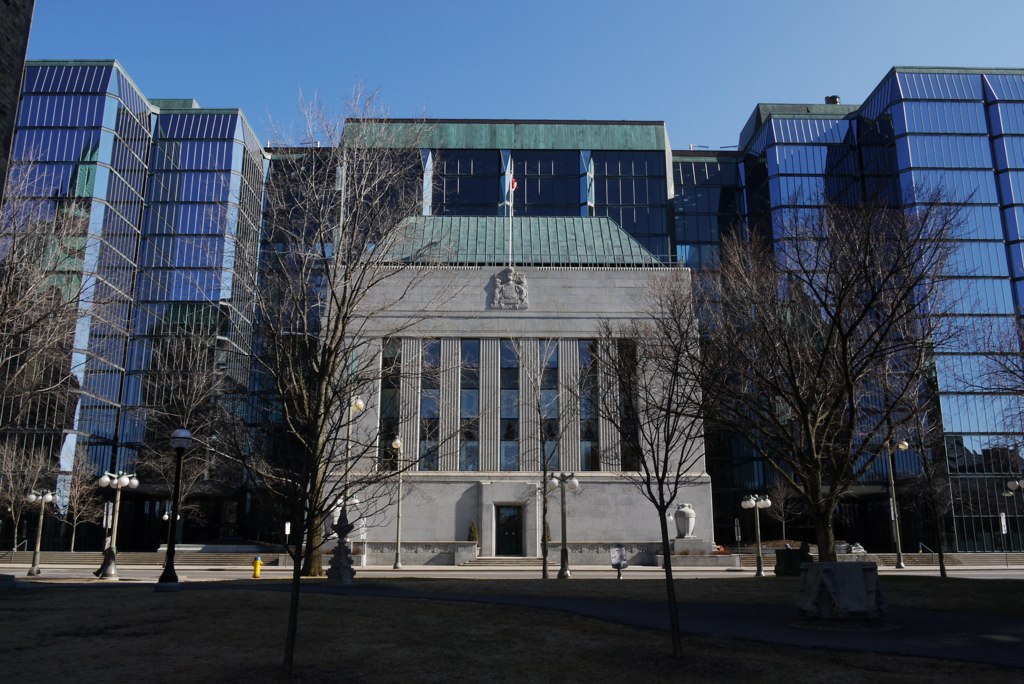
OTTAWA — Bank of Canada governor Stephen Poloz will share his latest take on the economy Wednesday in an update that’s expected to signal more patience on the key interest rate.
The central bank’s policy-makers are widely expected to hold the trend-setting rate steady as Canada exits a sharp slowdown that nearly brought the economy to halt at the start of the year. The bank’s interest rate has been at 1.75 per cent since last October.
Even with the unexpectedly strong rebound, those looking for fresh hints about the timing of the bank’s next policy move — hike or cut — will likely have to wait a little longer, several experts say.
“We really do think we’re in a prolonged pause right now as they just wait and see,” said Alicia Macdonald, principal economist for The Conference Board of Canada.
“There are a lot of downside risks to the forecast right now stemming from the global economic outlook and the bank will not ignore that in their statement. I think we’re going to see a very balanced statement and no direction in terms of when we might see policy rates move.”
The Bank of Canada will also deliver Wednesday its updated quarterly projections, which will reflect the economy’s healthy performance in recent months. The run of positive data has included the labour market’s best six-month stretch of job creation to start a year since 2002, even though June’s headline employment number came in flat.
In its April outlook, the bank predicted relatively weak growth of 1.3 per cent in the second quarter. After the solid spring, many analysts are now expecting growth of between 2.5 and three per cent.
Stephen Brown, senior Canada economist for Capital Economics, said he’ll be looking for any adjustments to Poloz’s late-2019 projections to see if the bank sees the second-quarter bounce back as a sign of fresh momentum or just a short-term lift.
Brown said his team, which he admits has one of the more “bearish” outlooks for the Canadian economy, views the second-quarter improvement as simply the fading of temporary factors. And while he doesn’t expect the bank to provide any signals on its next policy move, Capital Economics is forecasting a rate cut in October.
He predicted the second half of 2019 to see a drop in residential investment, weaker exports due to slowing U.S. growth and for Canada’s over-stretched households to curb spending. The bank’s governing council will also consider positive signs on trade, including a cease fire between China and the U.S. and the lifting of American tariffs on Canadian goods, he said.
“We’re expecting the bank to present a cautiously upbeat tone, but there’s obviously still a lot of questions about the outlook,” Brown said.
He added that any rate cut by the U.S. Federal Reserve at one of its upcoming meetings would be a key development for the Bank of Canada.
The bank, he said, has “a bit of a delicate balancing act at the moment” and will likely want to avoid sending a completely opposite message than the Fed, which has signalled it will cut soon.
In recent months, the Bank of Canada has shown it’s in no hurry to move the borrowing rate — up or down — after raising the benchmark five times between mid-2017 and last fall.
Sal Guatieri, senior economist and director and economic research for BMO Capital Markets, said he’s expecting to hear a cautiously optimistic message Wednesday from a bank that’s unlikely to want to “rock the boat,” even after the strong second quarter.
The Conference Board predicts the next rate move to be an increase, though it only expects it to happen in the second half of 2020. Macdonald said she doesn’t think the anticipated U.S. slowdown later this year will be enough to warrant a rate cut by the Fed.
The Bank of Canada, however, will need to consider all the global uncertainty, she added.
“The bank is going to want to nudge interest rates up a little bit more, so that they have a bit of ammunition when the next downturn hits.”